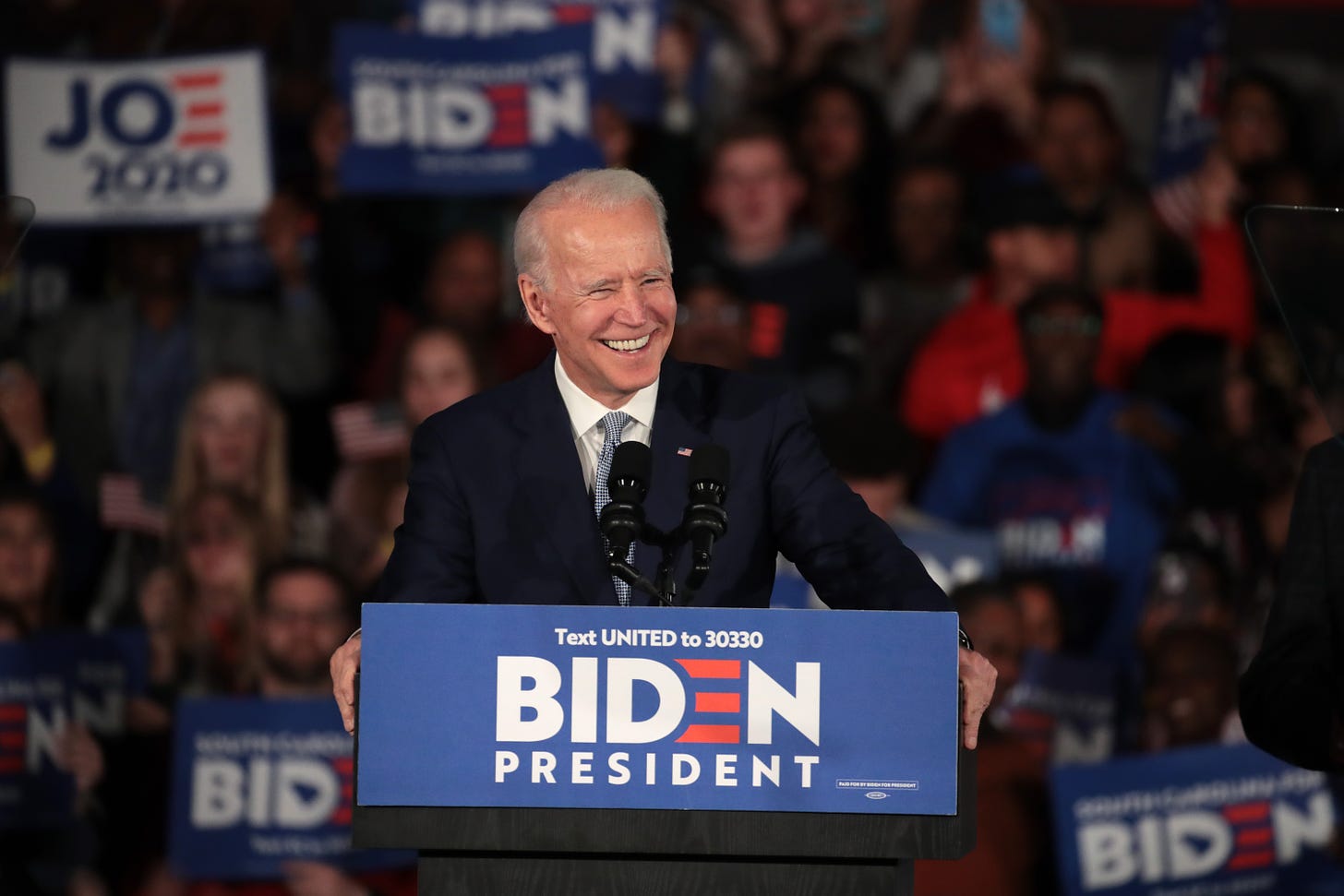Life is Contingent
On the path that led Joe Biden to this point—and where it could go from here.
I filmed a Conversation on Tuesday with my friend, Jim Ceaser, a very fine student of American politics. We were discussing the history and present state of our system of presidential selection (you’ll want to watch the Conversation when we release it later this month!), and he made one point in passing with which I strongly agree: Politics is highly contingent. History is highly contingent. The point is relevant to our immediate situation.
After the fact, the historians see patterns and the social scientists explain why things had to happen the way they did. Developments look to have been inevitable. But they weren't, and they aren't. There are decisive accidents, key inflection points, and unpredicted tipping points. These trigger other events, and one is then struck by how often things are path dependent.
But the path itself isn't path dependent. And the path can change. Life is more contingent that one sometimes thinks.
The last few days and weeks—and the 2020 Democratic presidential campaign as a whole—reminds us of this truth in ways too obvious to mention. It should also alert us to the fact that there can be future surprises and inflection points, pointing in various directions: Path dependency is true until it’s not, until the path is broken and a new path established.
So for those of us who have hoped, and worked in various ways, for a new center, pro-liberal democracy, pro-American exceptionalism candidate in 2020--this is no time to rest or relax.
At this moment of temporary triumph and momentary relief, let us instead re-read Chapter 20 of Section 1 of Volume Two of Democracy in America. Let’s reflect on Tocqueville's discussion of the "dangerous tendency" of historians in democratic ages:
The historians who live in democratic ages are not only prone to assign a great cause to every incident, but they are also given to connect incidents together, so as to deduce a system from them. . . . Historians who live in democratic ages, then, not only deny that the few have any power of acting upon the destiny of a people, but they deprive the people themselves of the power of modifying their own condition, and they subject them either to an inflexible Providence, or to some blind necessity . . . To their minds it is not enough to show what events have occurred: they would fain show that events could not have occurred otherwise. They take a nation arrived at a certain stage of its history, and they affirm that it could not but follow the track which brought it thither. It is easier to make such an assertion than to show by what means the nation might have adopted a better course.
In reading the historians of aristocratic ages, and especially those of antiquity, it would seem that, to be master of his lot, and to govern his fellow-creatures, man requires only to be master of himself. In perusing the historical volumes which our age has produced, it would seem that man is utterly powerless over himself and over all around him. The historians of antiquity taught how to command: those of our time teach only how to obey; in their writings the author often appears great, but humanity is always diminutive. If this doctrine of necessity, which is so attractive to those who write history in democratic ages, passes from authors to their readers, till it infects the whole mass of the community and gets possession of the public mind, it will soon paralyze the activity of modern society. And so Tocqueville urges that we "acknowledge the strength and independence of men," "for the great object in our time is to raise the faculties of men, not to complete their prostration."
Joe Biden may not win the Democratic nomination, but he could.
He may not defeat Donald Trump, but he could.
The campaign of 2020 may not be an inflection point in the rejection of extremism and illiberalism of left and right—and the beginning of a revitalization of liberal democracy here in the United States—but it could be.
And so, if I can borrow once again from Tocqueville, this time from the end of the penultimate chapter of Democracy in America, let us look forward to the rest of this potentially crucial year "with that salutary fear which makes men keep watch and ward for freedom," and not with either a "faint and idle terror which depresses and enervates the heart" nor with a weak and foolish complacency which dampens and enervates the spirit.




